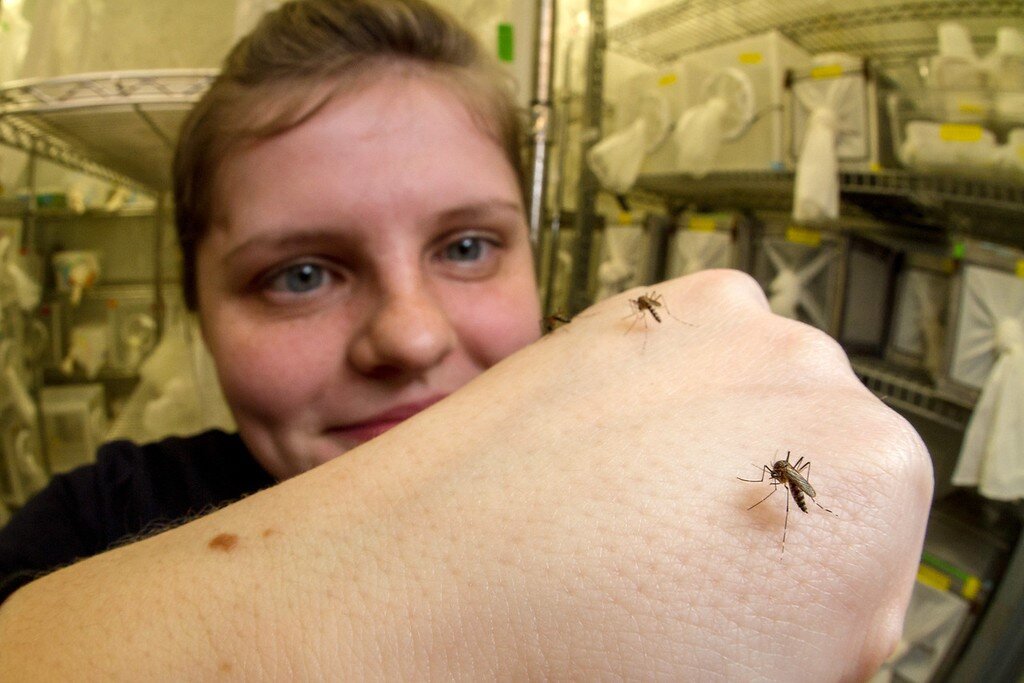Scientists Think They've Finally Figured Out Why DEET Is So Effective

Get the world’s most fascinating discoveries delivered straight to your inbox.
You are now subscribed
Your newsletter sign-up was successful
Want to add more newsletters?

Delivered Daily
Daily Newsletter
Sign up for the latest discoveries, groundbreaking research and fascinating breakthroughs that impact you and the wider world direct to your inbox.

Once a week
Life's Little Mysteries
Feed your curiosity with an exclusive mystery every week, solved with science and delivered direct to your inbox before it's seen anywhere else.

Once a week
How It Works
Sign up to our free science & technology newsletter for your weekly fix of fascinating articles, quick quizzes, amazing images, and more

Delivered daily
Space.com Newsletter
Breaking space news, the latest updates on rocket launches, skywatching events and more!

Once a month
Watch This Space
Sign up to our monthly entertainment newsletter to keep up with all our coverage of the latest sci-fi and space movies, tv shows, games and books.

Once a week
Night Sky This Week
Discover this week's must-see night sky events, moon phases, and stunning astrophotos. Sign up for our skywatching newsletter and explore the universe with us!
Join the club
Get full access to premium articles, exclusive features and a growing list of member rewards.
DEET works because mosquitoes can taste your body with their legs, and it makes them think your skin tastes super gross, according to a new study.
The chemical has long been known to be the most effective mosquito repellent available, but researchers weren't sure why or how it worked. The new study, available online in advance of publication May 6 in the journal Cell Current Biology, showed that DEET doesn't taste especially gross to mosquitoes' mouths. Rather, they really don't like the way it feels to the tongue-like cells on their feet.
"We were confident then that DEET was doing something interesting and fairly unique on the surface of the skin," lead study author Emily Dennis, a neurogeneticist at Princeton University, said in a statement. (Dennis was a graduate student at Rockefeller University when she did the DEET research.)
That's because, while DEET tastes bitter to mosquitoes that drink it, it doesn't taste any more bitter than other bitter chemicals. And Dennis had previously worked on a team that showed that DEET doesn't keep mosquitoes from landing on people. Only once the mosquitoes land, the researchers showed, does the effect of the repellent kick in and drive the mosquitoes away. [Googly Eyes: Photos of Striking Wasp Faces]
This new work had six stages:
First, the researchers offered mosquitoes one of three foods: sugar water, sugar water mixed with DEET or sugar water mixed with another bitter chemical. The insects preferred the plain sugar water to either chemical mixture, but didn't distinguish between DEET and the bitter substance.
Second, they slathered the skin of their arms in the bitter chemical at very high concentrations. The mosquitoes, they found, were still happy to land on the skin, puncture through it, and drink the clean blood beneath.
Get the world’s most fascinating discoveries delivered straight to your inbox.
Third, they offered the mosquitoes a serving of warm blood protected by a skin-like membrane. When the DEET or other bitter substances were mixed into that blood, they found, the mosquitoes didn't drink it.
Fourth, they tested those compounds on the surface of the membrane with clean blood beneath. Bitters on the membrane weren't effective at stopping the insects from drinking. But with a layer of DEET on the membrane, the mosquitoes still landed on it but immediately took off.
Fifth, they offered the mosquitoes blood beneath a patch of DEET-coated skin that was too small for them to simultaneously drink from and touch with their legs. The mosquitoes still drank, suggesting that they weren't just reacting to the way DEET felt to their mouthparts.
Sixth, and finally, they used a special glue to partially block the taste buds on the mosquitoes' legs. The insects still drank blood beneath DEET-coated skin, albeit less often, suggesting that the legs in particular were experiencing the repelling sensation when DEET worked.
So when you're outside, coated in DEET, know this: You still smell good enough to mosquitoes. They still want to drink your warm blood. But your skin tastes super gross to their legs.
- Gallery: Out-of-This-World Images of Insects
- Goliath Birdeater: Images of a Colossal Spider
- The Cutest Bugs in The World
Originally published on Live Science.

 Live Science Plus
Live Science Plus










